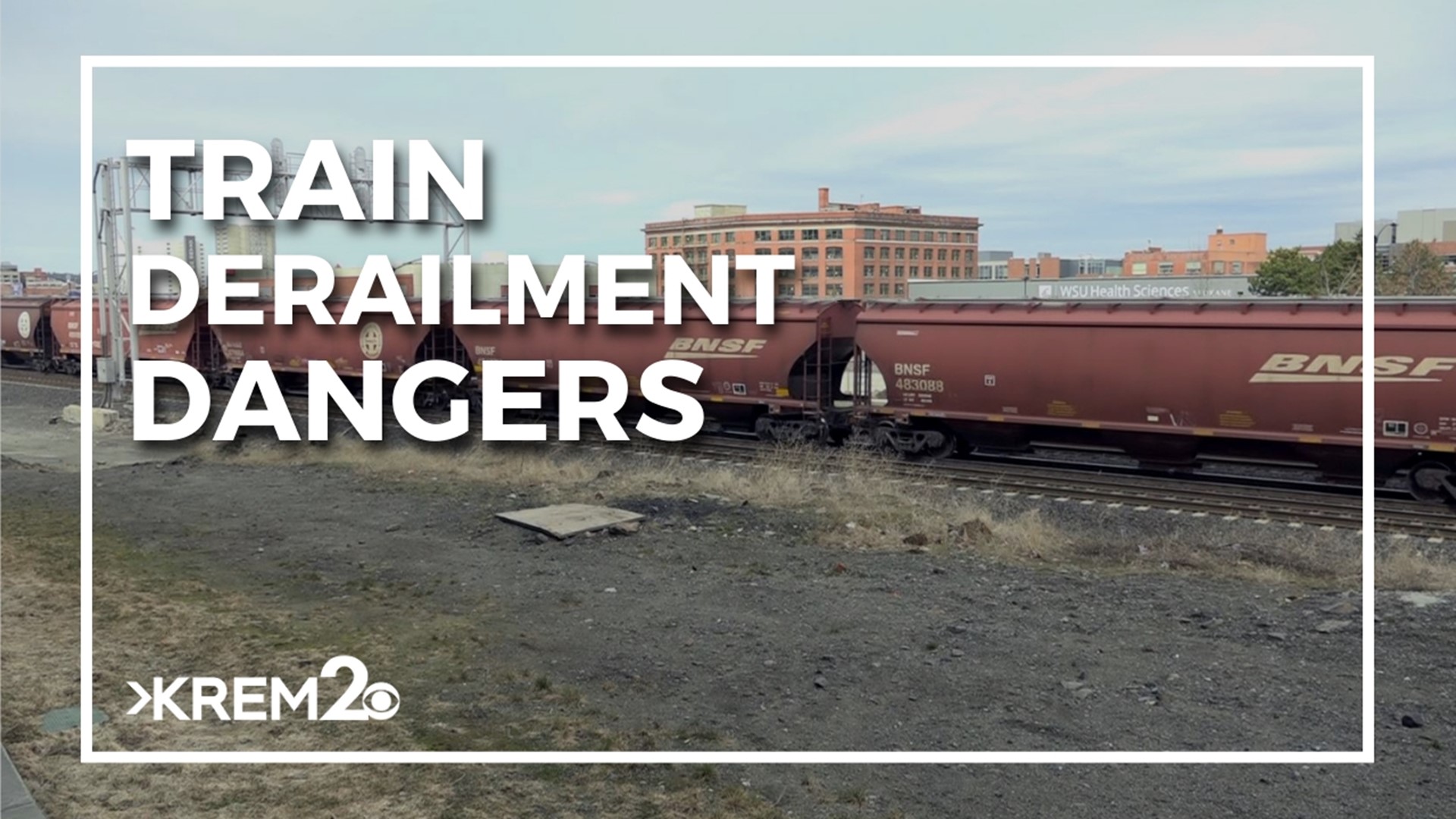SPOKANE, Wash. — Ohio. Washington. Montana.
Train derailments in these three states in the last two months have been talking points for people across the country to discuss railroad safety.
BNSF locomotive engineer Shawn Blackburn said despite the national attention derailments are getting, derailments are actually common.
"On average, there’s a derailment like everyday somewhere,” Blackburn said.
The severity and environmental impact of a derailment is what can cause more people to focus on one derailment over another.
"There was one in Ohio that made the news," Blackburn said. "It was really bad on the environment. Really bad for the people in that town. So now there's an increased focus, could this be a thing? And the truth is, it could be a thing for your town. It could be a thing for any town.”
When a spill does occur in Washington, the Department of Ecology is one of the responding agencies.
Response section manager Dave Byer said 4,500 spills happen in the state every year.
"Our initial efforts are going to look like community monitoring and worker safety monitoring," Byer started. "We're going to take initial source control and containment activities to stop additional materials from leaking into the environment and from posing as a health threat to the local population, or the local resources, whether cultural or environmental resources in our state waters. And then, we're going to work towards a detailed sampling and analysis to characterize the extent and nature of can combination that might be left behind."
Byer said the state works with railroad partners to prepare ahead of potential disasters.
"Washington is one of the very few states that has required our rail industry that's transporting the risk to prepare detailed spill contingency plans, outlining what they're going to do and how they're prepared to respond in the event of a spill,” Byer said.
Still, this doesn't stop people from talking.
"Ohio is in people's minds, and so you have a derailment, they want to know, is this going to be the same thing? Are we going to have fire plumes of smoke? Are we evacuating people?," Spills program communications manager Ty Kelter said. "So it just these big incidents really put those things on people's minds at the time."
But Blackburn doesn't sugarcoat the potential for a serious incident to happen anywhere, at any time.
"Every day of the week, there's at least two or three trains where one tank car could kill thousands," Blackburn said. "I don't think people should be quaking in their boots about a possible derailment. These tracks have been here since the 1800s, they're going to be here tomorrow and so are we. It's just part of doing business. Trains have to get through."
Blackburn said when it comes to discussing train safety, he thinks the focus should on train length.
"Train length has gotten completely out of hand," Blackburn said. "A train will stop here in Spokane and another will come up behind it and attach to it. Then they’ll make one giant train out of two. So next time you’re at a crossing and you see four miles of train, just hope it doesn’t break.”
Blackburn said addressing train length and doing more inspections of rail cars could help prevent future derailments from becoming national concerns.
DOWNLOAD THE KREM SMARTPHONE APP
DOWNLOAD FOR IPHONE HERE | DOWNLOAD FOR ANDROID HERE
HOW TO ADD THE KREM+ APP TO YOUR STREAMING DEVICE
ROKU: add the channel from the ROKU store or by searching for KREM in the Channel Store.
Fire TV: search for "KREM" to find the free app to add to your account. Another option for Fire TV is to have the app delivered directly to your Fire TV through Amazon.
To report a typo or grammatical error, please email webspokane@krem.com.

